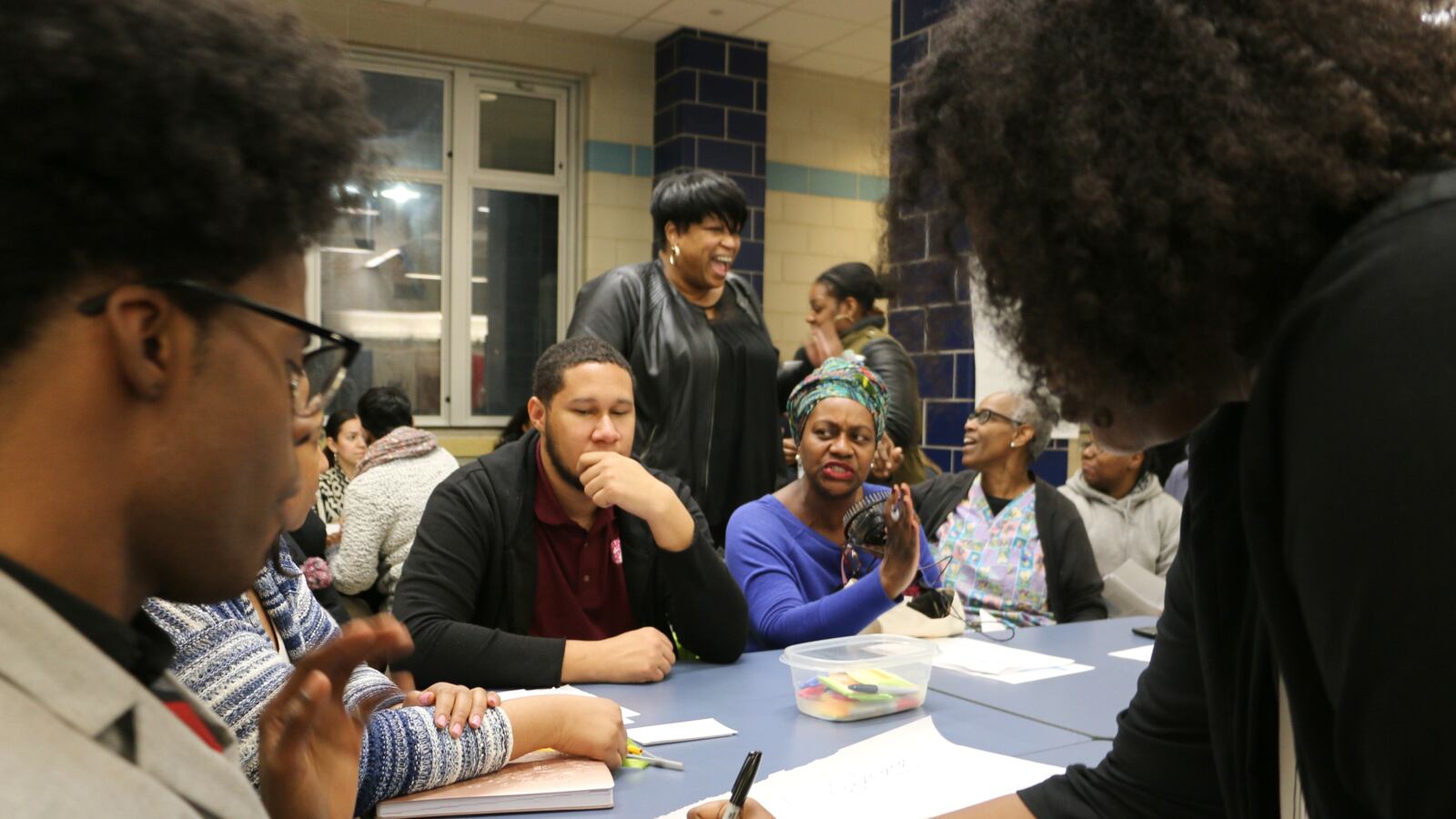Just months after unveiling a one-year plan to begin overhauling the Newark school system, officials are already working on a 10-year plan for the district — and they want the public to weigh in.
In June, the district published a nearly 30-page strategic plan to create a “stronger, wiser, and more efficient” school system. It drew on the ideas of hundreds of stakeholders collected at more than 30 meetings this year.
But that one-year roadmap was intended as a precursor to a more expansive vision: a decade-long district plan slated for release next June. So, with the current plan just getting off the ground, the district is reconvening focus groups to gather input for the next plan, which will stretch from 2020 to 2030.
“Everyone and anyone who is interested in educating children in Newark will definitely want to be part of the authoring of that strategic plan,” Superintendent Roger León said at last month’s school board meeting, adding that the district needs to have “a good pulse on what people believe are the necessary strategies” to improve the school system.
The latest round of brainstorming sessions began last month and will continue through December. Each session is geared toward a different set of stakeholders, including students, parents, partner organizations, and experts in early childhood and special education. The district invited select participants to join each group, but León added that “everyone else is also invited to attend.”
A Newark-based consultancy called Creed Strategies, which oversaw the development of the one-year plan, is hosting the focus groups with help from district officials and external partners.
The student sessions earlier this year and this fall have been co-hosted by Kaleena Berryman, the executive director of the Abbott Leadership Institute, a nonprofit at Rutgers University-Newark that trains students and parents on advocating for school improvements.
Berryman said the one-year plan featured strategies that students had called for, including more career-training opportunities and additional mental-health services in schools.
“The district is definitely listening — you can see the changes happening,” she said. “That’s what’s kept us at the table.”
At a recent session, students were asked to envision themselves in 10 years, then consider what the school system must do to help turn their visions into reality, Berryman said. Students used terms like “transformative,” “well traveled,” and “mentally healthy” to describe their future selves. To that end, they recommended that the district provide internships, study abroad opportunities, robust mental health and wellness services, and “culturally responsive” classroom materials that celebrate students’ diverse backgrounds.
Berryman said she was encouraged to see officials continue to seek feedback from a broad array of stakeholders as they chart a new course for the district.
“When you’re planning to transform a school district, the conversations don’t end, so why would the community engagement?” she said. “Hopefully it will go on for years and years to come.”
As the district works on its 10-year plan, tentatively called “The Next Decade,” the one-year plan known as “Clarity 2020” is in effect this school year. That document includes nearly 170 action items that touch on everything from teacher training to student transportation and building renovations.
Observers will be watching closely for evidence that officials are achieving Clarity 2020’s objectives amid the longer-term planning. León appears mindful of those expectations, writing in the introduction to Clarity 2020 that the district’s “greatest weakness” is failing to enact the “brilliant ideas” that people in the district propose.
León has also faced questions about his decision to create a decade-long strategic plan. Most districts map out goals for three to five years into the future, though a few appear to have made 10-year plans.
“We know that in education during the course of a decade things constantly change,” Newark school board member Reginald Bledsoe told León at last month’s meeting. He asked how León’s plan would be responsive to “the changes in the trends in education during that 10-year period.”
“To forecast 10 years is really a difficult task,” León acknowledged. He said one way the district will address that challenge is by incorporating shorter-term goals and “milestones” into the plan, allowing officials to periodically evaluate their progress and make any necessary course corrections.
Just as important, León said, will be regular check-ins with schools stakeholders such as parents, students, and teachers.
“We know that we are relying on the community to have a say on every aspect of the strategic plan,” León said. “Not only on its creation now, but also as it continues.”
The district calendar lists upcoming focus groups for the 10-year plan. The next session, intended for students, is scheduled for Wednesday.

This article tackles a topic raised during our 2019 Listening Tour. Read more about the Listening Tour here, and see more articles inspired by community input here.

